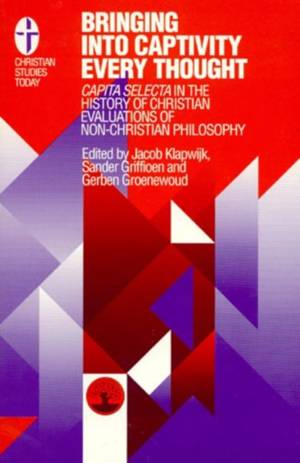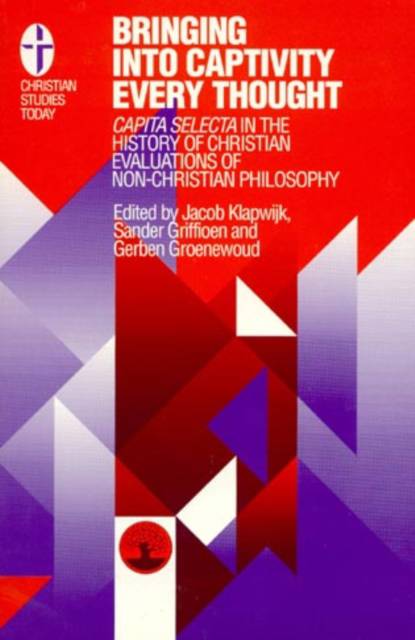
- Retrait gratuit dans votre magasin Club
- 7.000.000 titres dans notre catalogue
- Payer en toute sécurité
- Toujours un magasin près de chez vous
- Retrait gratuit dans votre magasin Club
- 7.000.0000 titres dans notre catalogue
- Payer en toute sécurité
- Toujours un magasin près de chez vous
Bringing Into Captivity Every Thought
Capita Selecta in the History of Christian Evaluations of Non-Christian Philosophy
Jacob Klapwijk, Sander Griffioen, Gerben Groenewoud
Livre relié | Anglais
86,45 €
+ 172 points
Description
What Clement of Alexandria, Calvin of Geneva and Gutierrez of Peru, and all the other thinkers discussed in this book have in common is at least this: they all bear witness to their struggle with the relation between Christian faith and non-Christian thought. This relation is the theme of the collection of essays presented here by way of case studies.
The struggle of the early church with the philosophy of the late antiquity was one of life and death. Faced with a despising Greco-Roman elite, Christians were forced to take a stand with respect to the Greek mind very existentially. As Christianity gained influence in the highly developed intellectual culture of the Roman Empire, the church wavered between acceptance and rejection of that culture.
Such hesitance between antithesis and synthesis also marked the church in the Middle Ages. The tensions left a wide track of power struggles.
How did Christians throughout the ages, actually find their way through the tension-fraught terrain of faith and culture? The issue far surpasses mere academic or historical interest: we ourselves are involved, and we are unable not to choose.
This book is one of the results of the research and discussions of an interdisciplinary team at the Free University of Amsterdam. Co-published with the Institute for Christian Studies.
The struggle of the early church with the philosophy of the late antiquity was one of life and death. Faced with a despising Greco-Roman elite, Christians were forced to take a stand with respect to the Greek mind very existentially. As Christianity gained influence in the highly developed intellectual culture of the Roman Empire, the church wavered between acceptance and rejection of that culture.
Such hesitance between antithesis and synthesis also marked the church in the Middle Ages. The tensions left a wide track of power struggles.
How did Christians throughout the ages, actually find their way through the tension-fraught terrain of faith and culture? The issue far surpasses mere academic or historical interest: we ourselves are involved, and we are unable not to choose.
This book is one of the results of the research and discussions of an interdisciplinary team at the Free University of Amsterdam. Co-published with the Institute for Christian Studies.
Spécifications
Parties prenantes
- Auteur(s) :
- Editeur:
Contenu
- Nombre de pages :
- 272
- Langue:
- Anglais
Caractéristiques
- EAN:
- 9780819178275
- Date de parution :
- 24-02-92
- Format:
- Livre relié
- Format numérique:
- Genaaid
- Dimensions :
- 152 mm x 229 mm
- Poids :
- 453 g

Les avis
Nous publions uniquement les avis qui respectent les conditions requises. Consultez nos conditions pour les avis.






